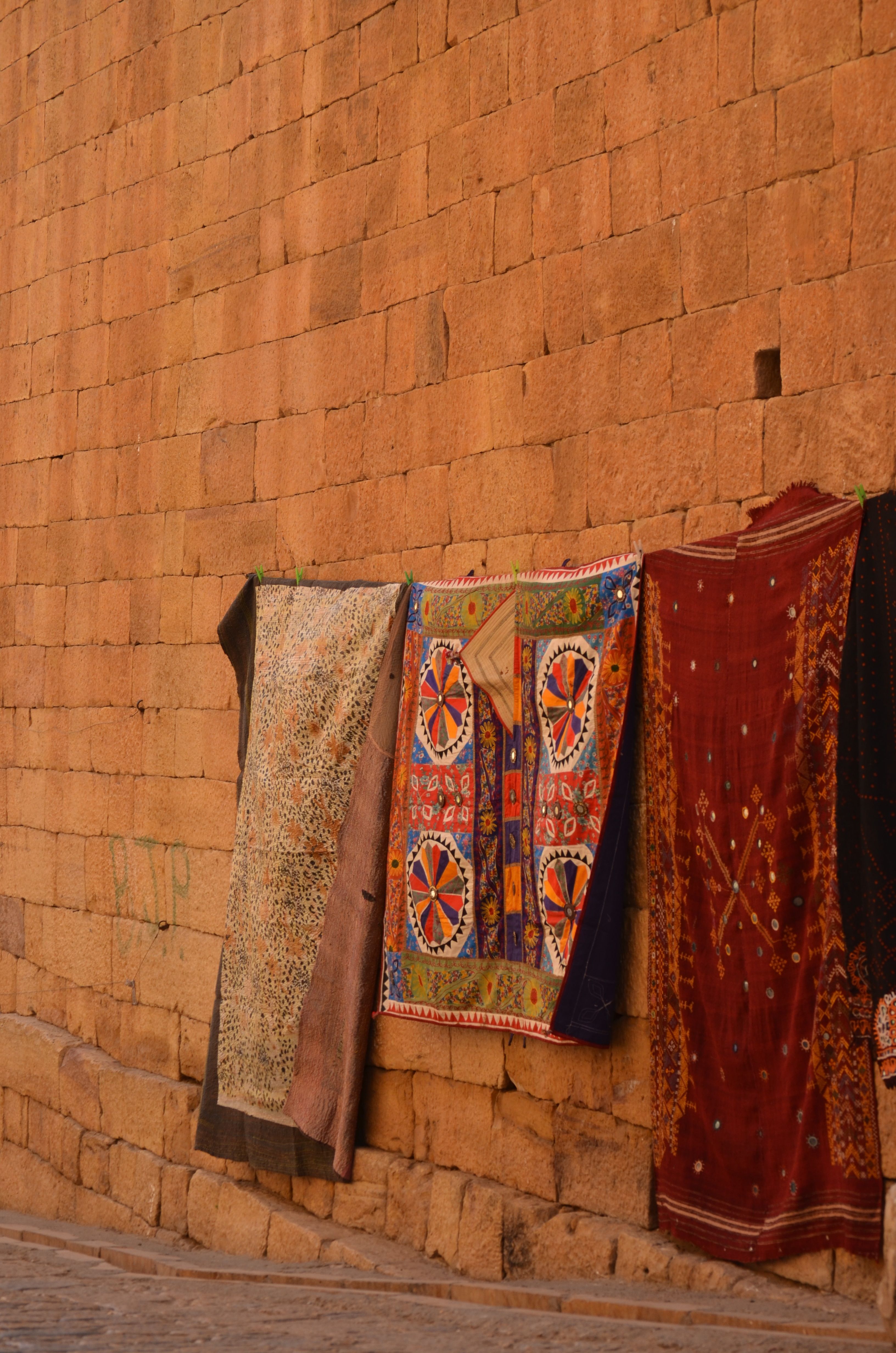Based in the Melbourne suburb of Fitzroy, Ishka has been bringing the world closer for more than 40 years. Founder Michael Sklovsky had the benefit of a ‘world view’ for much of his life, and was seemingly destined to see the world from an alternate angle. His Russian born father Grisha was a refugee five times, fleeing Russia to Germany as a child. He studied there before moving to France, where in 1938 he met the young Australian traveller who would become Michael’s mother. At the outbreak of the Second World War he fled again, this time to Czechoslovakia where he fought alongside the English army. Finally, seven years after they first met, Michael’s mother and father were reunited in Australia.
Sitting in his lounge, surrounded by knick-knacks from his various travels, Michael recounted the moment he developed his worldview. Growing up, he said, his childhood was cosmopolitan. “One of my father’s friends who influenced me greatly was an Indian man, Khushwant Singh. It’s hard to imagine now, but a bearded Sikh in Camberwell was an extraordinary novelty,” he said. “He gave me a very important book he’d written, Last Train to Pakistan. It certainly opened my mind up to all the different ways you could live and showed me the narrowness of the Australian perspective.” With a newly minted worldview, Michael set off to university. Describing himself as a highly political student, Michael was opposed to the Vietnam War and conscription. After his first year of study, Michael dropped out and moved to Sydney where he became a builder’s labourer. Eventually he took off to travel Australia, along the way discovering a passion for arts and crafts.
Michael later returned to Melbourne University where he studied Mathematics and Psychology. “When I was a student I had to support myself. I did a little bit of math coaching, but I enjoyed making things and started selling things that I made on the university campus and then the esplanade,” he said. “While on the esplanade, four of us working down there realised we all needed to find new accommodation, and it was cheaper to get an old run-down shop than it was to rent a residence.” In 1971 the friends opened the first ever Ishka store in Glen Iris, named after the Afghan dog living with them. Michael has since discovered the exotic name holds multiple meanings in many different languages. “I always loved Ishka being undefinable,” he said.
The original shop was made up of different workshops; candles, jewellery, leather and clothes were all made, each craftsman making income from his own products. Michael – a self- taught leatherworker – made practical items like belts and bags, but also delved into a world of fantasy to create one-off pieces. “I had a world exclusive line, and there weren’t many people who were extraverted enough to buy them,” said Michael, as he picked up an incredibly detailed fish-shaped bag with scales and a functioning tail. For the first six years he made everything in the shop. By 1975, the others craftsmen had gone their separate ways and Ishka started to take on a new shape, with Michael buying unique items from travellers.
Shortly after, Michael visited Indonesia. It was to be a defining moment in his life. He was shocked to find villages with brilliant artisans, but nothing to show for it. For Michael, the best way to help developing countries is not through charities but by supporting their economy. “The benefit we bring the suppliers is proportionate to what we sell. If we sell one hundred dollarsworth of goods, that’s roughly three days work for someone in a developing country,” he said.
For his second voyage Michael set off to Thailand and Europe. From there he developed a two-month, one-month pattern, which would help cement his importing business. Michael says he has always seen himself as more of a craftsman than a businessman. “I was able to buy myself a big house before I even started selling other people’s goods. Back in those days anybody with energy and creative ideas could make a decent living,” he said.
Over the last few years Ishka has made a lot of changes. With the enlistment of Michael’s cousin Toby Darvall as the CEO, the business is booming. New stores opened in Bendigo, Ballarat, Wagga and Traralgon and a store in Warrnambool is on its way. It’s easy to see why Michael describes Toby as the future of Ishka. “We’re in full expansion mode and I imagine in a few years we’ll be in Queensland and South Australia,” said Michael. With products from some 40 countries, Ishka continues to bring the world to our doorstep. Michael said in his 40 years of travelling there has been great progress in the world. “A simple way of looking a it is, when I started travelling there were four billion people on the planet and two billion of them were malnourished and stunted. And now there’s seven billion people on the planet and there’s less than one billion that are malnourished and stunted,” he said. Ishka has grown and changed enor- mously over the years but it is Michael Sklovsky’s vision that has remained the constant.
Michael practices what he preaches, having been to nearly all the countries Ishka sources its products from. “You have a genuine connection with the communities you travel to, you get to meet them at a very real level and work with them over decades, so you get to see how the community evolves,” he said. It was on a trip to India that he met his Danish wife, Bodil. Together they have a Vietnamese daughter, Anna. “We have a very multicultural family,” he said. “From a lifestyle point of view I really love what I do, it has been a spring board for me to see the world.
Kristie-Lee Clifford

